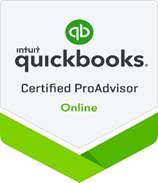You’ve probably heard advice about how it helps to carve out a niche for your business. But did you know it will also save you a tremendous amount of time? Here’s why.
When a small business first opens, the entrepreneur is thankful to take anyone who breathes and pays their bill. Once the business fills with customers, the owner can afford to get more particular. They can take a look at what type of clients they like to serve best, as well as the type of clients they best serve.
Through targeted marketing, small business owners can begin to attract the type of clients they prefer. That’s when defining your niche comes in handy. But it also saves time in your business.
“Same Old, Same Old” Equals Time Savings
When you serve a niche, you will see the same client challenges over and over again. You can create a systematic process that can be followed for your clients when your clients are more homogeneous.
As you become good at identifying the challenges of your niche clients, you can anticipate the needs of your clients much better and more accurately. There is less breadth to learn. You can take the time you save to learn about solutions for your homogeneous clients that are far deeper and far more effective.
Depth, not Breadth
As an example, a small business that serves hospitals, physician practices, and drug stores with their pharmaceutical products will have three learning curves instead of one. They’ll grow faster if they discover which client type is more profitable for them, let’s say, hospitals, and target more hospitals in the marketplace. If they can generate the same amount of revenue with 20 hospitals as they could the mix of three types of clients, their production and marketing costs will be much lower.
There are even more benefits to developing your niche. When you implement this deeper knowledge that you’ve learned from serving multiple clients that are alike, your client testimonials will be glowing. You will develop a reputation faster within the niche than you would in the general world. Your referrals will speed up.
Developing a niche not only saves you marketing and sales dollars, it also creates economies of scale within your staff. They have less to learn and will surpass their learning curves faster, which enables them to serve your clients sooner and better.
Have I piqued your interest about niches? Are you convinced there are riches in niches?
Riches in Niches
Let’s list some of the ways a niche can be defined.
- Industry: Your niche might be by industry, as in construction, health care, or technology. The more recession-proof your industry is, the better.
- Service/Product: A niche could be by service or product, as in tax planning, women’s shoes, or dog grooming.
- Geography: You can also narrow your offerings by geography.
- Customer Type: Another way to niche is by customer, such as hospitals, psychiatric practices, or retirement homes.
- Combination: You can mix and match for power niche-ing, as in nurses’ shoes, hotels that cater to traveling rock bands, or nonprofit teen programs.
Is Your Business Already Niched?
To get a hint of how your business might already be developing a niche, review your customer list and look for commonalities among your current client base. Look for type of customer, industry, geography, product/service, and even gender to see if you spot a trend. Group similar clients together to see how much revenue as a percentage of total sales each type is bringing in.
Once you identify that you have several of the same type of clients, you can benefit from productivity gains by standardizing the way those accounts are served.
Finding a niche allows you to work smarter, not harder, and keep more of what you make in your business.








